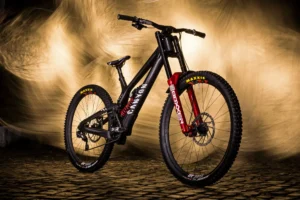Empowering Sustainable Growth
The electric bike (e-bike) market is surging, with global sales projected to hit 40 million units by 2025, driven by demand for eco-friendly and efficient transportation. For small businesses, particularly in urban areas, e-bikes offer a cost-effective solution for deliveries, mobile services, and employee commuting, reducing operational costs and carbon footprints. However, the upfront cost of e-bikes ($1,000–$10,000) and related infrastructure can strain limited budgets. Electric bike financing for small businesses provides accessible funding options, enabling companies to integrate e-bikes without compromising cash flow. This article explores the best electric bike financing for small businesses in 2025, covering loan options, tax incentives, benefits, and strategies to maximize value for urban enterprises.
Why Small Businesses Need E-Bike Financing
Small businesses, from coffee shops to courier services, are increasingly adopting e-bikes to navigate urban congestion, reduce fuel costs, and align with sustainability goals. E-bikes, with motors up to 750 watts and speeds reaching 28 mph for Class 3 models, enable faster deliveries (2.5 times quicker than cars in rush hour) and lower maintenance costs compared to vehicles. However, purchasing multiple e-bikes or cargo models for business use can be financially daunting. Electric bike financing for small businesses bridges this gap, offering flexible payment plans, low-interest loans, and tax credits to make e-bike adoption affordable and strategic.
Challenges for Small Businesses
Small businesses often face tight budgets and limited access to traditional bank loans, especially for startups or those with less-than-perfect credit. The cost of e-bikes, plus accessories like cargo racks or batteries, can exceed $15,000 for a small fleet. Additionally, urban regulations, such as New York City’s 15 mph speed limit for e-bikes, require compliant models, adding complexity to purchasing decisions. Electric bike financing for small businesses addresses these challenges by offering tailored solutions that minimize upfront costs and support long-term growth.
Benefits of Financing E-Bikes
Financing e-bikes allows small businesses to spread costs over time, preserving capital for other expenses like inventory or marketing. Electric bike financing for small businesses can reduce transportation costs by up to 70% compared to gas-powered vehicles, with e-bikes costing $0.05–$0.10 per mile versus $0.60 for cars. Financing also enables businesses to claim tax incentives, such as Colorado’s $500 retailer tax credit, boosting savings. Additionally, e-bikes enhance brand image, appealing to eco-conscious customers, with 60% of consumers preferring businesses with sustainable practices.
Key Features of Electric Bike Financing for Small Businesses
When selecting electric bike financing for small businesses, consider options that align with operational needs and financial constraints. Here are the critical features to prioritize:
Flexible Loan Terms
Financing plans typically offer 3–60-month terms, allowing businesses to match payments to cash flow. Clean Energy Credit Union, for example, provides loans from $1,000–$15,000 with fixed rates and no prepayment penalties, ideal for small businesses scaling fleets gradually. Flexible terms ensure affordability, with monthly payments as low as $39 for a $1,000 e-bike at 15% APR over 36 months.
Low or No Credit Check Options
Traditional lenders often require strong credit, which can exclude startups or businesses with limited history. Providers like Acorn Finance and Progressive Leasing offer electric bike financing for small businesses with no or soft credit checks, ensuring accessibility for credit-challenged companies. These options, with rates from 10–36% APR, allow businesses to secure funding without impacting credit scores.
Tax Credits and Incentives
Government incentives enhance financing value. Colorado’s Enterprise Fund offers fixed-rate loans for e-bike retailers, paired with a $500 tax credit per e-bike sold, helping businesses offset costs. Minnesota’s 2025 e-Bike Rebate program provides up to $750 off per e-bike for eligible retailers, further reducing expenses. Financing plans that align with these programs maximize savings.
Comprehensive Coverage
Financing often includes add-ons like insurance or maintenance plans, protecting businesses from theft (50% of bike thefts occur in public spaces) and repair costs. Providers like Velosurance bundle financing with insurance, covering theft, damage, and liability, ensuring business continuity in urban environments with high risks.

Top Electric Bike Financing Options for Small Businesses in 2025
Below are the best electric bike financing for small businesses in 2025, selected for affordability, flexibility, and business-friendly features.
Clean Energy Credit Union: Best for Fixed-Rate Loans
Clean Energy Credit Union offers loans from $1,000–$15,000 for e-bikes, with 36 or 60-month terms and fixed interest rates. Designed for clean transportation, these loans have no prepayment penalties and support automatic payments, ideal for small businesses managing cash flow. Eligibility requires membership in the credit union’s “field of membership,” such as affiliation with environmental organizations, but the process is streamlined online. This option suits businesses purchasing multiple e-bikes for delivery or commuting. Learn more about Clean Energy Credit Union’s e-bike loans.
Acorn Finance: Best for Credit-Challenged Businesses
Acorn Finance connects small businesses with multiple lenders, offering e-bike financing for good and bad credit with no impact on credit scores. Loans range from $1,000–$100,000, with terms of 12–84 months and rates from 5.99–35.99% APR. Its quick application process (under 5 minutes) and lack of collateral requirements make it accessible for startups or businesses with slow payment histories. Acorn’s platform is ideal for purchasing high-end cargo e-bikes for urban deliveries. Explore Acorn Finance’s e-bike financing options.
Affirm via Retail Partners: Best for Retail Financing
Affirm partners with retailers like Rad Power Bikes and Canyon, offering electric bike financing for small businesses with 0–36% APR and terms of 3–36 months. For example, a $2,000 e-bike might cost $72/month over 12 months at 15% APR. Affirm’s no-penalty prepayment and soft credit checks make it accessible, while its integration with major retailers simplifies fleet purchases. This option suits businesses buying directly from brands with established financing programs.
Colorado Enterprise Fund: Best for Retail Businesses
The Colorado Enterprise Fund (CEF) provides fixed-rate loans for e-bike retailers, supporting inventory expansion or fleet purchases. Paired with Colorado’s $500 tax credit per e-bike sold, CEF loans help businesses manage upfront costs while benefiting from state incentives. Retailers must register with the Department of Revenue to participate, ensuring compliance and access to quarterly advance payments. This option is ideal for Colorado-based businesses in the e-bike retail or rental sector.
Progressive Leasing: Best for Lease-to-Own
Progressive Leasing offers no-credit-needed financing with 12-month lease-to-own plans, ideal for businesses with limited credit. Payments start as low as $37/month, with a 90-day early purchase option to reduce costs. Available through retailers like Tire Discount, this option suits small businesses needing quick access to e-bikes without upfront payments, though total costs may exceed retail prices if not paid early.
How to Choose the Right E-Bike Financing for Your Business
Selecting the best electric bike financing for small businesses requires aligning options with operational needs and financial goals. Here’s how to choose:
Assess Business Needs and Fleet Size
Determine the number and type of e-bikes needed. Delivery services may require cargo e-bikes (e.g., Tern GSD, $3,000–$5,000), while employee commuting programs may use Class 1 models ($1,000–$2,000). Acorn Finance supports larger fleets, while Affirm suits smaller purchases through retailers. Consider battery range (50–93 miles) and accessories like racks for operational efficiency.
Evaluate Credit and Cash Flow
Businesses with strong credit can secure low rates (5.99–10% APR) from Clean Energy Credit Union or Acorn Finance. Those with poor credit or startups should opt for no-credit-check options like Progressive Leasing or Affirm, which use soft checks. Ensure monthly payments fit cash flow, as Affirm’s $39–$72/month plans are manageable for small budgets.

Leverage Tax Incentives and Rebates
Maximize savings with state programs. Colorado’s $450 discount and $500 retailer tax credit, or Minnesota’s $750 rebate, reduce costs significantly. Pair these with financing from CEF or Acorn to lower overall expenses. Check local regulations, as some cities classify high-speed e-bikes as motor vehicles, affecting financing eligibility.
Consider Maintenance and Insurance
E-bikes require regular maintenance (e.g., battery replacements, $200–$500) and theft protection, especially in urban areas with high theft rates. Choose financing with bundled insurance, like Velosurance, or services offering maintenance, like Friiway’s subscription model, to minimize long-term costs.
Challenges and Solutions for E-Bike Financing
Adopting electric bike financing for small businesses involves navigating challenges to ensure cost-effective integration.
High Upfront and Ongoing Costs
E-bike fleets can cost $5,000–$50,000, straining small business budgets. Financing spreads costs, with Progressive Leasing’s no-money-down plans easing initial expenses. Pair with rebates, like Minnesota’s $750 per e-bike, to offset costs. Early loan payoff options, like Clean Energy Credit Union’s, reduce interest expenses.
Limited Lender Availability
Traditional banks may hesitate to finance e-bikes due to their niche status. Specialized lenders like Acorn Finance and CEF focus on e-bike financing, offering accessible terms for small businesses. Online platforms streamline applications, with approvals in minutes, as seen with Affirm.
Regulatory Compliance
Urban e-bike laws, such as California’s motor restrictions or New York’s speed limits, require compliant models. Financing providers like Clean Energy ensure bikes meet federal standards (750 watts, 20–28 mph), while retailers like Rad Power Bikes offer compliant options. Verify local rules to avoid fines or reclassification as motor vehicles.
Theft and Maintenance Risks
E-bikes face high theft risks (2 million bikes stolen annually in the U.S.) and maintenance costs. Financing plans with insurance, like Velosurance, and secure storage solutions, like Kryptonite locks, mitigate risks. Choose retailers with warranty and repair support, such as Ride1Up’s one-year warranty, to reduce downtime.
The Future of E-Bike Financing for Small Businesses
electric bike financing for small businesses will evolve with market trends and urban priorities. Lenders are introducing AI-driven loan approvals, as seen with Acorn Finance’s small business financing, to streamline access for startups. Integration with smart city data will enable financing tied to route-specific needs, while programs like Ford and n+’s leasing initiatives signal broader corporate involvement. Expanded tax credits, like Colorado’s, and community e-bike programs will further reduce costs, making financing more attractive. As cities add bike lanes (e.g., San Diego’s 2025 infrastructure plans), financing will play a key role in scaling e-bike adoption for small businesses.
Conclusion
Electric bike financing for small businesses in 2025 empowers entrepreneurs to embrace sustainable, efficient transportation without financial strain. Options like Clean Energy Credit Union, Acorn Finance, Affirm, Colorado Enterprise Fund, and Progressive Leasing offer flexible terms, low rates, and accessibility for businesses of all credit profiles. By leveraging tax incentives, bundling insurance, and aligning with operational needs, small businesses can reduce costs, enhance brand sustainability, and navigate urban challenges. As e-bikes reshape city mobility, choosing the right financing plan ensures small businesses thrive in a greener, more connected 2025.



